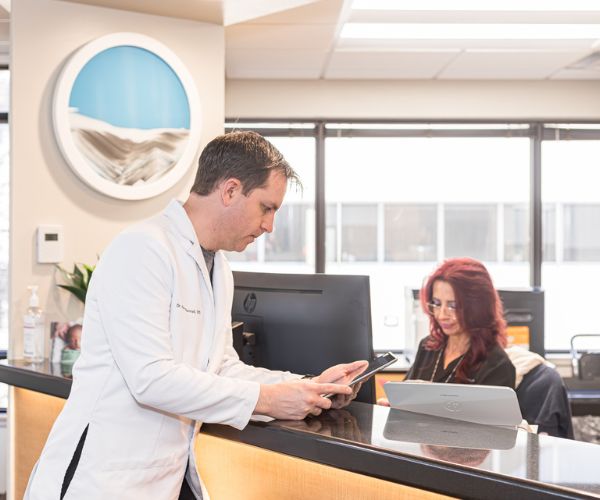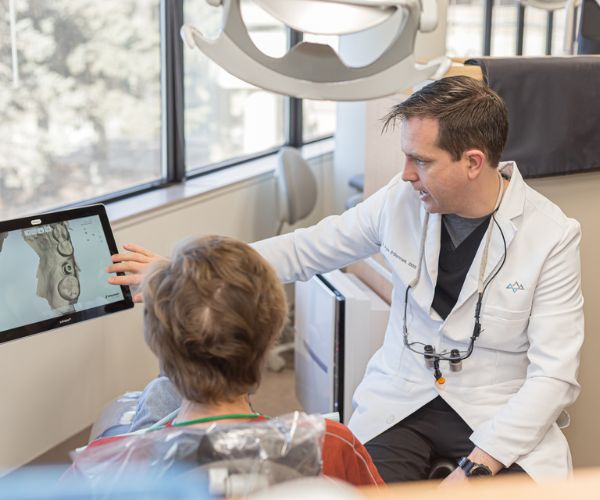How to Determine If You Need Emergency Dental Care

How to Determine If You Need Emergency Dental Care
Dental problems can happen when you least expect them—during a weekend getaway, late at night, or right before an important event. While some issues can wait until regular office hours, others require immediate attention. Knowing how to determine if you need emergency dental care can save you pain, prevent complications, and even help you keep your natural teeth.
At Alpine Vista Dental, we want you to feel confident in recognizing when a dental concern is a dental emergency and when it’s okay to wait. Here’s what you need to know.
What Is Considered a Dental Emergency?
A dental emergency is any situation involving your teeth, gums, or jaw that requires prompt treatment to stop bleeding, alleviate severe pain, save a tooth, or address an infection.
Here are the most common signs that you may be dealing with a dental emergency:
1. Severe or Persistent Tooth Pain
A mild toothache may not require immediate care, but severe, throbbing, or persistent pain can indicate a serious issue like an infection, abscess, or cracked tooth. If over-the-counter pain relievers aren’t helping, or if the pain interferes with your ability to eat, sleep, or concentrate, you should call your dentist right away.
Don’t wait: Infections can spread quickly and may lead to more severe health problems if left untreated.
2. Swelling of the Face or Jaw
Facial swelling—especially around the cheeks, jawline, or neck—can signal a dental abscess or spreading infection. This is especially concerning if it’s accompanied by:
- Fever
- Difficulty swallowing
- Trouble breathing
These are signs of a serious infection that needs immediate attention. Call your dentist or head to the emergency room if symptoms are severe.
3. Knocked-Out or Loose Tooth
If your tooth has been knocked out or suddenly feels loose due to trauma, time is critical. You have the best chance of saving the tooth if you get emergency dental care within 30 to 60 minutes.
What to do:
- Handle the tooth by the crown (top), not the root.
- Rinse gently with water (don’t scrub).
- Try to place the tooth back in the socket or store it in a container of milk.
Get to your Highlands Ranch dentist immediately.
4. Cracked, Broken, or Chipped Teeth
Not every chip is an emergency, but if a large piece breaks off or the tooth is painful, it may require urgent care. A cracked tooth can expose the inner pulp, making it vulnerable to bacteria and infection.
Signs it’s an emergency:
- Sharp or stabbing pain
- Sensitivity to hot or cold
- Bleeding from the tooth or gums
Prompt treatment can often save the tooth and prevent the need for more extensive procedures.
5. Bleeding That Won’t Stop
Bleeding after a dental procedure (like an extraction) or due to trauma should typically stop with gentle pressure. But if bleeding continues for more than 10–15 minutes, or if it’s heavy and uncontrollable, it’s time to seek emergency care.
Uncontrolled bleeding could be a sign of a deeper issue and shouldn’t be ignored.
6. Gum or Jaw Infections
Painful, swollen gums with pus, a bad taste in your mouth, or a bump near the root of your tooth are common signs of an abscess. This type of infection can cause serious complications if not treated quickly.
Other signs of infection include:
- Fever
- Swollen lymph nodes
- Fatigue
- Difficulty opening your mouth
If you suspect a dental abscess, contact your Highlands Ranch Dentist immediately. In some cases, antibiotics or drainage may be needed right away.
7. Broken Dental Restorations (Crowns, Fillings, or Bridges)
Losing a crown or filling may not feel like an emergency, but it can expose sensitive parts of your tooth and lead to pain or further damage if left untreated.
If you’re experiencing:
- Sharp pain or sensitivity
- A loose crown or filling that’s affecting your bite
- Difficulty eating or speaking
It’s best to call your dentist for advice. In some cases, temporary fixes can be applied at home, but professional care is the safest route.
When It’s Not an Emergency
Not all dental concerns require immediate care. Here are a few examples of issues that can typically wait for a scheduled appointment:
- Minor tooth sensitivity
- Dull toothaches without swelling or fever
- Small chips that aren’t painful
- Broken braces or wires (unless causing injury)
Still unsure? Give your dental office a call. At Alpine Vista Dental, we’re happy to advise whether your situation requires urgent care—or if we can schedule a regular visit in the next few days.
What to Do in a Dental Emergency
If you think you’re experiencing a dental emergency:
- Call your dentist immediately. Many dental offices offer after-hours care or can refer you to an emergency provider.
- Control pain and swelling with cold compresses and over-the-counter medication (ibuprofen is usually recommended).
- Avoid eating or drinking anything that could irritate the affected area.
- Keep any lost teeth or restorations safe and clean until you can be seen.
Emergency Dental Care in Highlands Ranch, CO
At Alpine Vista Dental, we understand that dental emergencies can be stressful and painful. That’s why we’re committed to providing compassionate, timely care when you need it most. Whether it’s a knocked-out tooth, an unexpected abscess, or unbearable pain, you don’t have to face it alone.
If you’re unsure whether your situation is an emergency, don’t hesitate to call us. We’ll walk you through the next steps and help get you relief as quickly as possible.
Your health, comfort, and smile matter—especially when time is of the essence.



